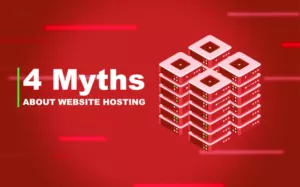As speed and performance have a big impact on user experience and business success, it’s more important than ever to make sure your website runs well. A Content Delivery Network (CDN) is one effective technique that can assist in achieving this. A content delivery network, or CDN, is a collection of dispersed servers that cooperate to send web content to users according to their location. Businesses can increase scalability, security, and website performance by utilizing a CDN.

Here’s a closer look at the benefits of using a CDN and why it’s a valuable asset for any website.
Improved Website Performance
The capacity of a CDN to improve website performance is one of its main advantages. One server is used for traditional web hosting, which might result in longer load times, particularly for users who are located far from the server’s physical location. This problem is solved by a CDN, which distributes content among numerous servers situated in different parts of the world. The content delivery network (CDN) expedites load times by directing user content requests to the closest server, hence decreasing latency.
Fast load speeds are essential to customer satisfaction. Research indicates that a little one-second lag in page load speed can cause a noteworthy rise in bounce rates and a fall in conversion rates. Businesses may guarantee that their websites load quickly and effectively and give their visitors a better experience by using a content delivery network (CDN).
Enhanced Website Security
Security concerns are rising for websites of all kinds. Several security elements provided by CDNs aid in protecting websites from online threats. As an example, a lot of CDNs offer DDoS (Distributed Denial of Service) defense, which lessens the impact of attacks meant to overload a website with traffic. A CDN can deflect and absorb harmful traffic by spreading it across several servers, allowing genuine visitors to continue accessing the website.
Furthermore, SSL/TLS encryption, which safeguards data transferred between users and the website, is a feature that many CDNs incorporate. Sensitive data, including payment information and login credentials, are protected from being intercepted by bad actors thanks to this encryption. Additionally, some CDNs include Web Application Firewall (WAF) services, which add an additional line of defense against frequent online threats and vulnerabilities.
Enhanced Scalability
Server resources are in more demand as websites expand and draw more users. If the server cannot manage the traffic load, this may result in outages and performance problems. With CDNs, scalability issues are reduced by spreading the demand over a network of servers. Because of this spread, websites can withstand spikes in traffic more effectively because no single server is overloaded.
For companies that encounter traffic surges, such as those that occur during sales events or new product launches, scalability is especially essential. Surges in traffic can be handled by a CDN without affecting stability or performance. Because of this flexibility, companies can concentrate on their marketing and expansion plans rather than worrying about possible server restrictions.
Lower Bandwidth Expenses
If a company relies on web hosting, bandwidth might be very expensive. Bandwidth is used as data is sent from the server to the user each time a user requests something. By caching content on several servers and delivering it from the place closest to the user, CDNs assist in lowering bandwidth expenses. As a result, less data must be sent from the origin server, resulting in a decrease in overall bandwidth usage and related expenses.
Numerous CDNs have rates that are based on the volume of data sent or the quantity of requests made. Companies can cut costs without sacrificing performance by streamlining content distribution and lightening the strain on the origin server.
Global Reach and Improved User Experience
Across many areas, businesses catering to a worldwide clientele must ensure a consistently excellent user experience. By guaranteeing that users from all around the world can obtain content quickly and reliably, CDNs improve worldwide reach. CDNs lower latency and enhance user experience by serving content from servers that are closer to the user’s location. A content delivery network (CDN) facilitates a smooth user experience across multiple devices and locations, enabling businesses to expand their user base and increase engagement.
Better Reliability and Uptime
Downtime on a website can have negative impacts such as missed sales, tarnished reputations, and reduced trust among customers. By providing redundancy and failover capabilities, CDNs improve reliability and uptime. The impact on users is minimized when a server encounters a problem or becomes unavailable because the content delivery network (CDN) instantly reroutes traffic to other servers.
Load balancing, another feature of CDNs, evens out traffic distribution among several servers. By preventing any one server from becoming a bottleneck, this lessens the possibility of server overload and outages. Consistently delivering a dependable user experience and preserving a steady online presence are two things that CDNs assist firms with.
Conclusion
Using a Content Delivery Network (CDN) has several different advantages, all of which are significant. CDNs are beneficial for companies of all sizes, providing benefits including better website performance, more security, and lower bandwidth costs. Employing a content delivery network (CDN) can help businesses make sure their websites run smoothly, offer an enhanced user experience, and withstand traffic spikes and security breaches.
As a leading provider of all-inclusive digital solutions, F8 Media specializes in branding, graphic design, SEO, web development, and more. Speak with us right now to learn how our services can revolutionize your online approach and produce outstanding outcomes.



